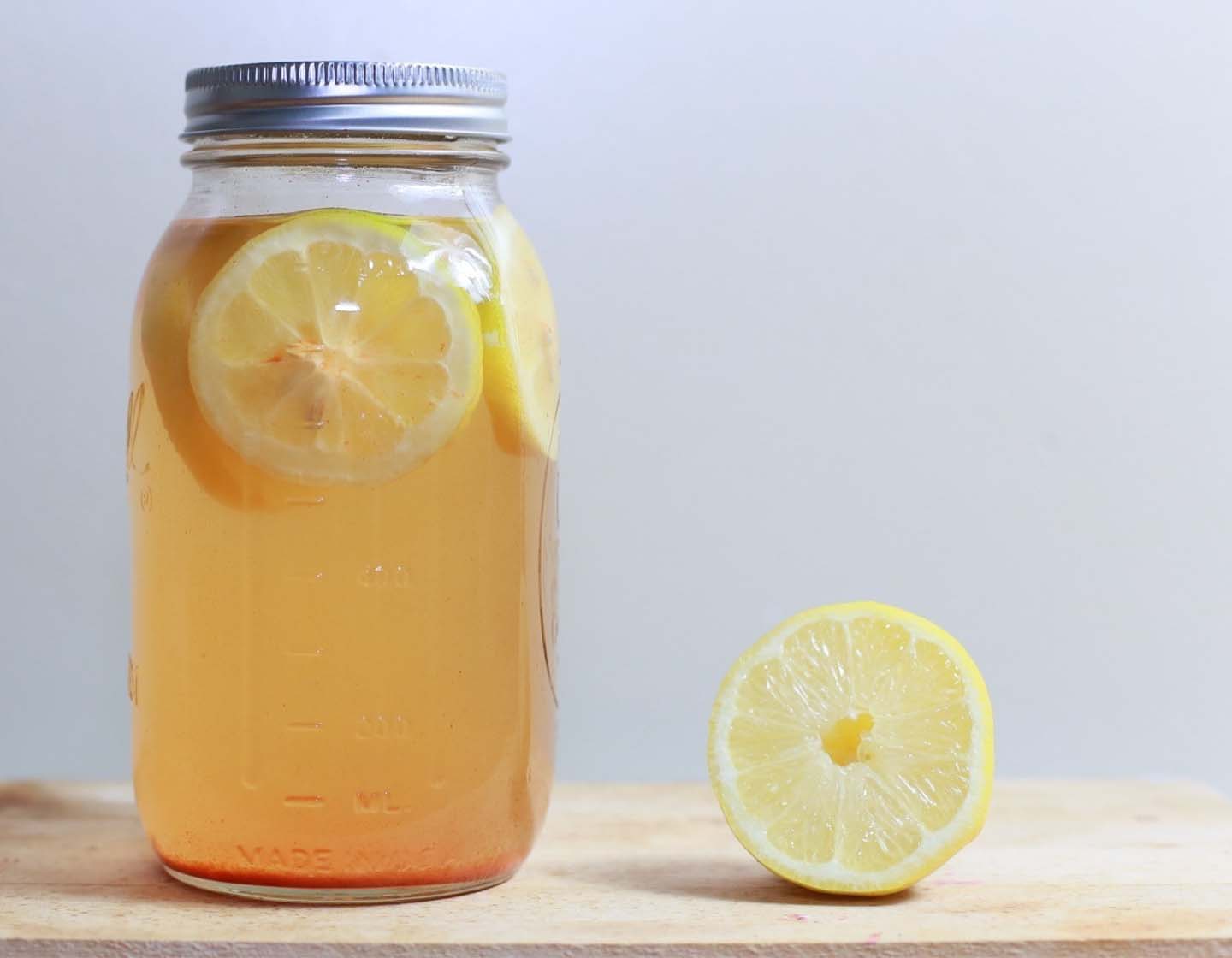
The Art of Sous Vide
Estimated reading time: 6 minutes
Sous Vide Like An Expert
Sous vide is one of the most unique and exciting bar skills you can use to improve the quality of your drinks.
Originating from the French term for "under vacuum", sous vide involves sealing ingredients in a plastic pouch or glass jar and immersing them in water at a precise, consistent temperature. This method allows ingredients to cook or infuse evenly while retaining their flavors.
The culinary world has long embraced the sous vide method, celebrating its precision and consistency in delivering perfectly cooked dishes. Now, this innovative technique has found its way into the realm of mixology, offering bartenders a novel approach to infuse, extract, and redefine cocktail experiences.
Learn how to sous vide ingredients, the equipment you need, and ways to use it to enhance your menu.
Sous Vide Equipment
For bartenders who aren’t culinary inclined, sous vide can be an intimidating prospect. To adopt the technique seamlessly, make sure to use the right equipment and best practices.
When creating new flavors with sous vide, make sure you have:
Immersion Circulator: This device heats and circulates the water, maintaining a consistent temperature throughout the sous vide process.
Vacuum Sealer: Essential for sealing ingredients in airtight bags, ensuring optimal infusion or extraction.
Durable Plastic Bags or Glass Jars: These hold the cocktail ingredients during the sous vide process.
When heating your ingredients to draw out new flavors and subtle tasting notes, focus on the following to quickly master this delicate art.
Precision Infusions: Traditional infusions might take days or even weeks. With sous vide, bartenders can speed up the process to mere hours. Whether infusing spirits with herbs, spices, fruits, or other flavor agents, sous vide allows for a rapid yet deep infusion.
Extraction: Sous vide is excellent for drawing out delicate flavors that might otherwise be lost or muted in conventional methods. For instance, extracting nuanced flavors from botanicals for gin or vermouth becomes more controlled and efficient.
Temperature Control: Unlike direct flame or boiling, sous vide provides unparalleled temperature precision. This is particularly beneficial for cocktails that demand exacting temperatures to highlight or preserve certain flavors.
Consistency: Especially valuable for commercial settings, sous vide ensures each batch of a cocktail infusion or extraction remains consistent in flavor and quality.
Revolutionizing Cocktail Creation
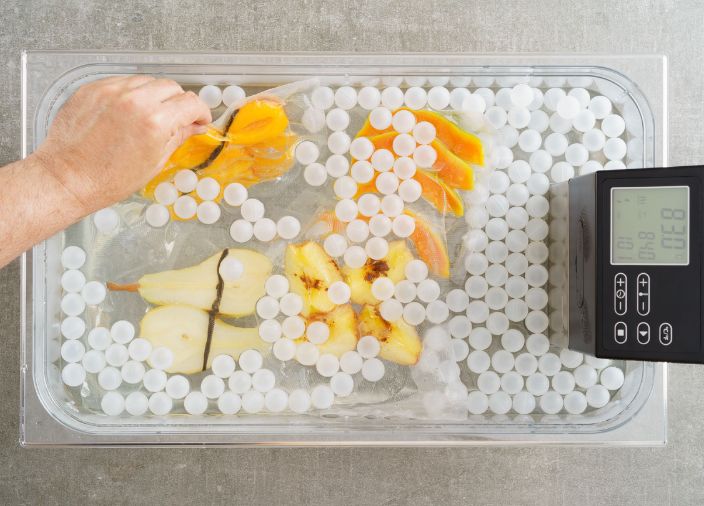
Revolutionizing Cocktail Creation
The application of sous vide in mixology opens a world of possibilities, and some of the best bartenders have already used the process to offer enhanced cocktails and impressive drinks. Get inspired by these innovations and use the process yourself to create an outstanding menu.
Clarified Cocktails: By using sous vide with ingredients like milk and citrus, bartenders can create "milk-washed" spirits, which are clear but retain the flavors of both components.
Barrel-Aged Flavors without the Barrel: With wood chips and sous vide, bartenders can mimic the flavors of barrel aging in a fraction of the time it would take in an actual barrel.
Custom Creations: The precision of sous vide allows mixologists to experiment with a myriad of ingredients, crafting unique infusions that might be impractical or impossible through traditional means.
Key Takeaways
Sous Vide involves sealing ingredients in a plastic pouch or glass jar and immersing them in water at a precise, consistent temperature.
By bringing precision, efficiency, and a broader palette of flavors, sous vide is reshaping cocktail creation.
The method allows ingredients to cook or infuse evenly while retaining their concentrated flavors.
Key sous vide tools are an immersion circulator, vacuum sealer, and durable plastic bags or glass jars.
Techniques and best practices include precision infusion, extraction, temperature control, consistency, and safety.
Examples of practical applications: Clarified cocktails, mimicry of barrel-aged flavors, and custom creations using unique infusions.
Related Content
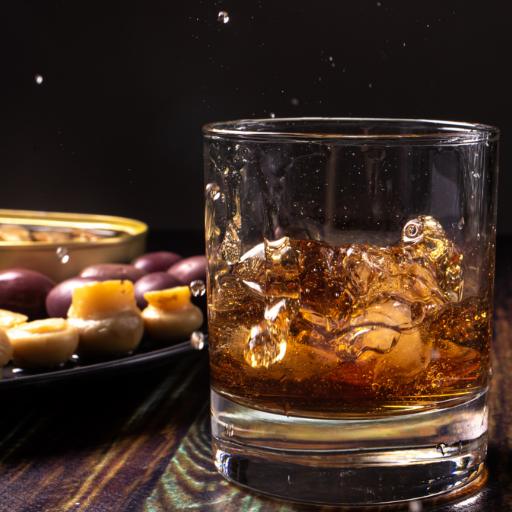
Master the Art of Whisky and Food Combinations
Picking the perfect whisky variant for a meal enhances your customer experience. Watch this webinar to learn how to make exquisite whisky and food combinations.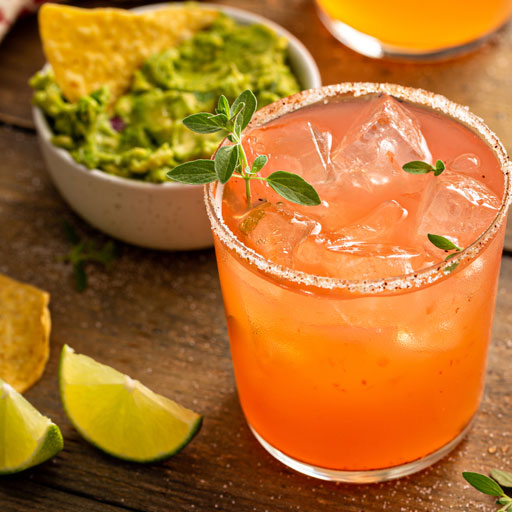
Flavor Pairings and Drinks Guides
Take your bartending skills to the next level and craft exceptional cocktails with these Flavor Pairings and Drinks Guides.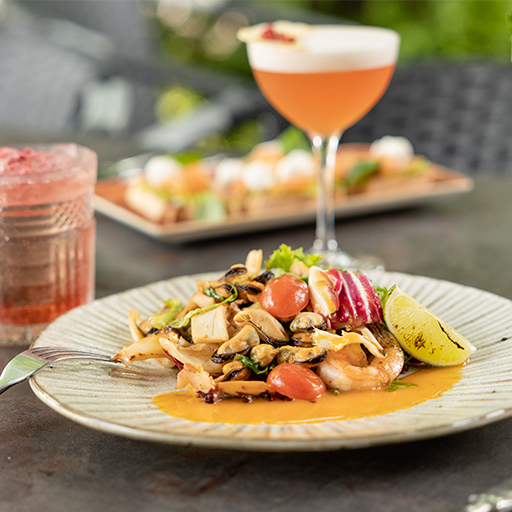
Successfully Pairing Food and Drink Together
Learn how to pair certain food and drinks together and best add these combinations to your menu.
